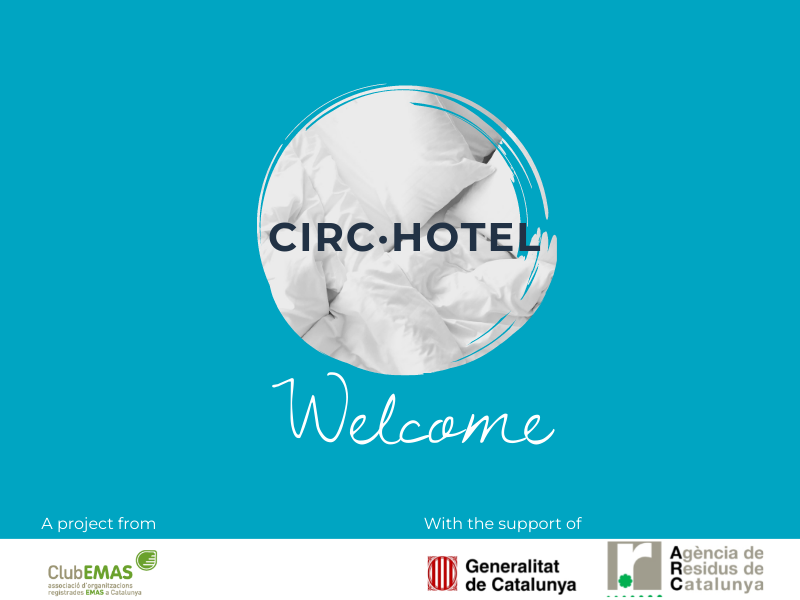
Hotels generate different waste streams, and many types of waste could in fact BE AVOIDED. Some objects or materials are managed as WASTE when they could be REUSED within the hotel itself or by other users. The EU Sectoral Reference Document[1] for the accommodation sector has set a benchmark of less than 0.6 kg of waste per client per night, an objective that it is far from the current reality in many hotels.
How can the principles of the circular economy be applied in the hotel sector? What kind of synergies and collaborations can be developed with other sectors and stakeholders? These are some of the questions that "CIRC-HOTEL", a project developed by the EMAS Club and supported by the Catalan Waste Agency seeks to answer.
The project has created a pilot group of five accommodations of various categories – ranging from a hostel to a luxury hotel - located in Barcelona and nearby area. Three of which are EMAS registered.
Throughout the project, the EMAS Club and the pilot group collaborated to identify and promote practices that allow the hotel sector to reduce its environmental impact by adopting more circular processes, activities, and purchasing decisions. This emphasis is particularly on reducing material consumption and waste prevention.
Did you know that the laundry bags in hotel rooms are often not used for this purpose and have a very short lifespan? For example, a 4-star hotel recorded a consumption of 6,321 plastic bags in one year and received only 101 laundry service requests. This consumption is equivalent to 2,958 m2 of plastic material, enough material to cover 11.5 tennis courts!
It may not seem like a big deal, but the plastic film wrapped around sheets and towels provided by the laundry supplier can add up to a substantial waste stream. In one of the hotels in the CIRCHOTEL project, this waste amounted to 1,230 kg per year.
Have you ever considered the cost and waste associated with the daily use of plastic film in the kitchen? In the group of hotels in the project, it has cost more than €1,000 per year (even reaching €2,500 in some cases), with an annual consumption of 251,910 m2, equivalent to 966 tennis courts or covering 35.4 times the playing area of the Barça’s Stadium in Barcelona!
Every year, approximately 4.5 billion m2 of carpet are produced worldwide, and much of it ends up in landfills or is incinerated. How many square metres and tonnes of materials can be generated in the renovation of a hotel?
Have you considered how to implement separate waste collection by the guest in the room without having to throw away the waste bins already available?
Well, let's get down to business, there is a lot of work to do! To quickly identify the best practices and determine if any are suitable for your accommodation, consult this list to save time and take action. Remember that you can also implement those identified in the above-mentioned Sectoral Reference Document and assess your performance against excellence benchmarks.
Find some good practices: Circular Economy in the Hotel industry: from challenges to action!
If you have additional practices not on the list that you want to share, feel free to contact us: info clubemas [dot] cat (info[at]clubemas[dot]cat)
clubemas [dot] cat (info[at]clubemas[dot]cat)
[1] The Sectoral Reference Documents for the Tourism sector has been developed by the EU Joint Research Centre and provides Best Environmental Management Practices (BEMPs), key environmental performance indicators (to measure the environmental performance in each area) and benchmarks of excellence (an indication of the level of environmental performance achieved by the best performers in the sector).
Details
- Publication date
- 19 October 2023
- Author
- Directorate-General for Environment
